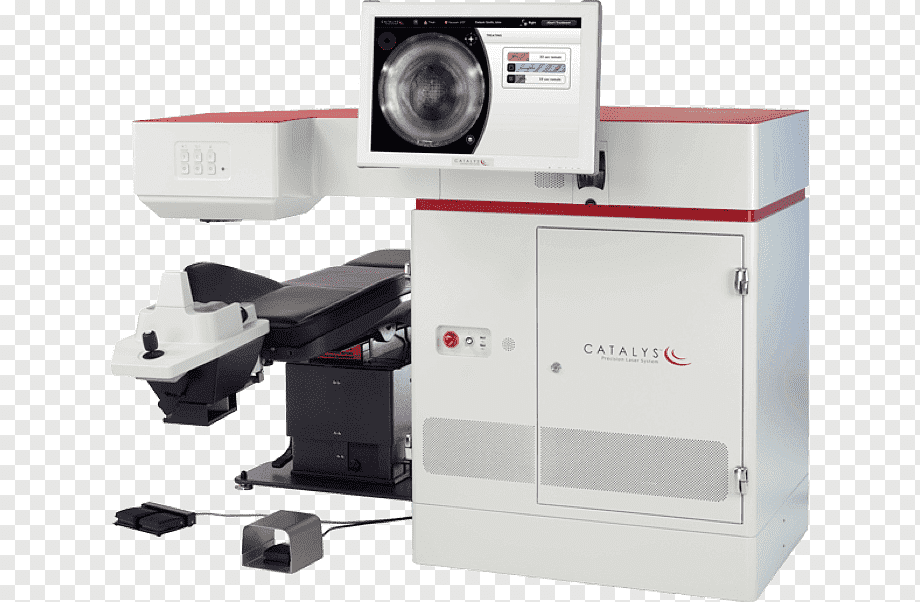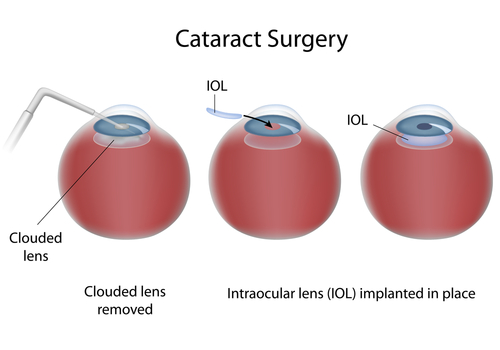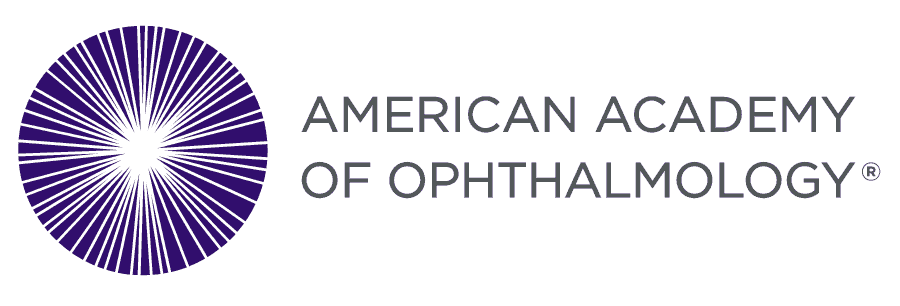Cataracts are clouding of the lens of the eye which causes your vision to become progressively more blurred with time. Many people describe their night vision as being affected and overall filmy or foggy vision in general are common complaints. An increase in glare, dimming of colors and double vision are also symptoms of growing cataracts.
The most common cataract surgery is phacoemulsification where a small incision is made in the eye and the lens is broken up and replaced by an implant or intraocular lens. Newer toric implants such as the Alcon Acrysof, AMO tecnic toric, and multifocal implants such as the Restor and Tecnis, are being used as well as the conventional monofocal implants so that many people do not need eyeglasses correction after surgery.
After surgery the patient may feel minor discomfort and sensitivity to light. Typically a patient would wear a good wrap around pair of sunglasses for protection during the day and an eyeshield at night to prevent night time eye rubbing for about a week. Prescription eye drops will be used from 3-4 weeks after surgery depending on the speed of the healing process. The vision will be at best a few weeks after surgery but can be significantly better the next day. If glasses are needed they would typically be given at the 4 week visit. There should be a limitation to bending and lifting of heavy objects for a few days following the procedure. Most other normal activities are resumed right away.
Even though cataract surgery is one of the safest procedures available, all surgeries have risks. Post operatively the patient is checked for infection, bleeding, retinal detachment and cystoid macular edema or swelling of the macula. In 20% of patients a “secondary cataract” forms which is a clouding of the capsule that is holding the implant. A laser procedure is performed called a yag capsulotomy which makes a hole in the capsule so the patient can see clearly again.
Overall cataract surgery is a safe and effective way of restoring ones vision. There are many experienced surgeons at the Fort Lauderdale Eye Institute that are available for cataract evaluations when needed.









